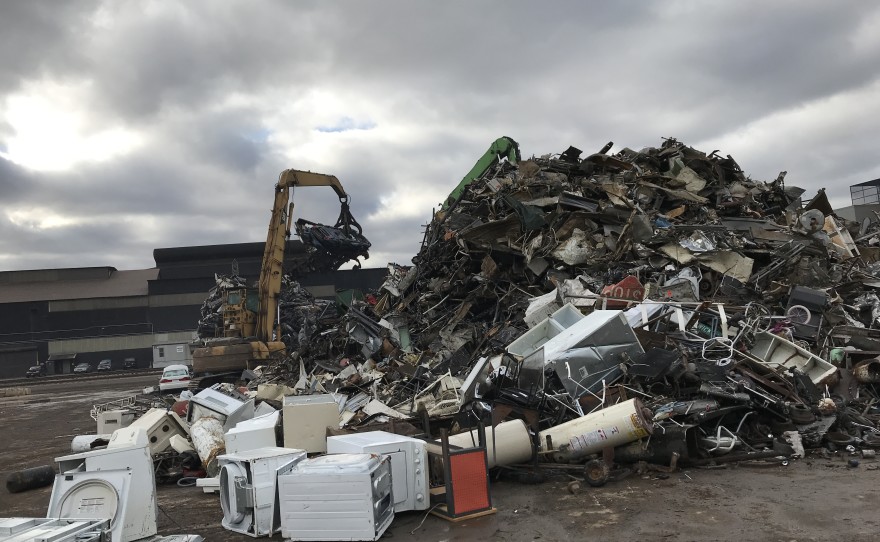

MAY 18, 2022
Metal comes in many different forms and alloys, but they all come in two categories: ferrous and nonferrous. Ferrous metals contain the element Iron, while nonferrous metals do not. As a scrap metal company, RCM Recycling can help you identify the type of metal you have.
Ferrous metals are those that contain iron. Iron is an extremely common element, making up nearly 5% of the Earth's mass. Iron is used in many different applications, but we will focus on its use in making metal products.
Ferrous metals are used in almost all industries, including construction, transportation, and manufacturing. They are also used for many other purposes, including food utensils, tools, and weapons.
When it is hot rolled or forged into shape, steel is a combination of iron and carbon, which gives it strength and hardness. From construction materials to household goods like cutlery and pots, steel has many applications. Steel can be made stronger by adding additional chromium, vanadium, or nickel elements. Once combined, the result is more resistant to corrosion and harder to work with during manufacturing processes.
Wrought iron, an iron alloy has fibers of slag inclusions, giving it a fibrous or "wrought" appearance. In addition to its toughness, ductility, malleability, corrosion resistance, and ease of welding, wrought iron is an excellent construction material. Welded iron was the most common form of malleable iron in the past, before the development of steelmaking methods and the availability of large quantities of steel.
Cast iron is an iron alloy with a very low melting temperature. It is brittle but has exceptional tensile strength and is malleable in its hardened state. Cast iron tends to be heavy, bulky, and strong. It has a considerable amount of carbon (about 4.5%), but not enough to make it hardenable by heat treatment such as tempering or case hardening.
Nonferrous metals are also called non-ferric, nonferrous, or base metals. They are a group of chemical elements in the periodic table that are not ferric (iron-containing) or ferrous (iron-containing). Nonferrous is derived from the Latin word meaning "not containing iron." Examples of nonferrous metals include aluminum, copper, and zinc.
Aluminum is one of the most popular nonferrous metals used in the manufacture of jewelry. It is also lightweight and durable, making it an ideal metal for creating earrings and other types of jewelry.
Copper is another popular choice among manufacturers because it's inexpensive and easy to work with. It is also highly conductive and has excellent thermal properties. However, copper tends to tarnish quickly when exposed to air due to its electrical properties. If you want your copper jewelry to last long, you will have to take extra measures to prevent it from tarnishing prematurely.
Zinc has a low melting point (it melts at 420 degrees Fahrenheit) and is used in things like pennies and dimes. It also has a bright, silvery color and is heavier than copper and gold.
Bronze is an alloy containing copper and tin used for tools, weapons, and jewelry. Today it is often seen on statues and monuments because it's more durable than other metals.
Brass is softer than bronze or zinc, making it more malleable than either bronze or zinc, which allows it to be shaped easily by hand tools without breaking or cracking during the process.
RCM Recycling is your number one choice for your scrap metal recycling of ferrous metals. We provide a complete range of services for all ferrous-based scrap materials such as car bumpers, old railings, cable wires, and steel plates.
Please contact one of our representatives as soon as possible. One of our representatives will be glad to assist you in determining the best way to recycle your ferrous metals.